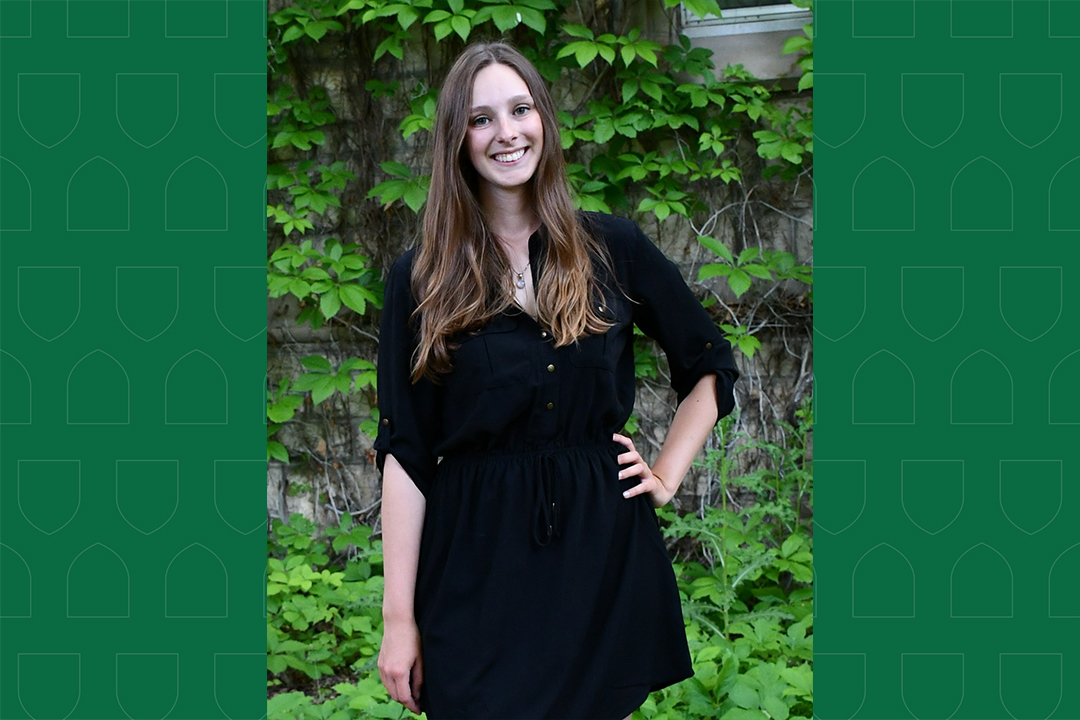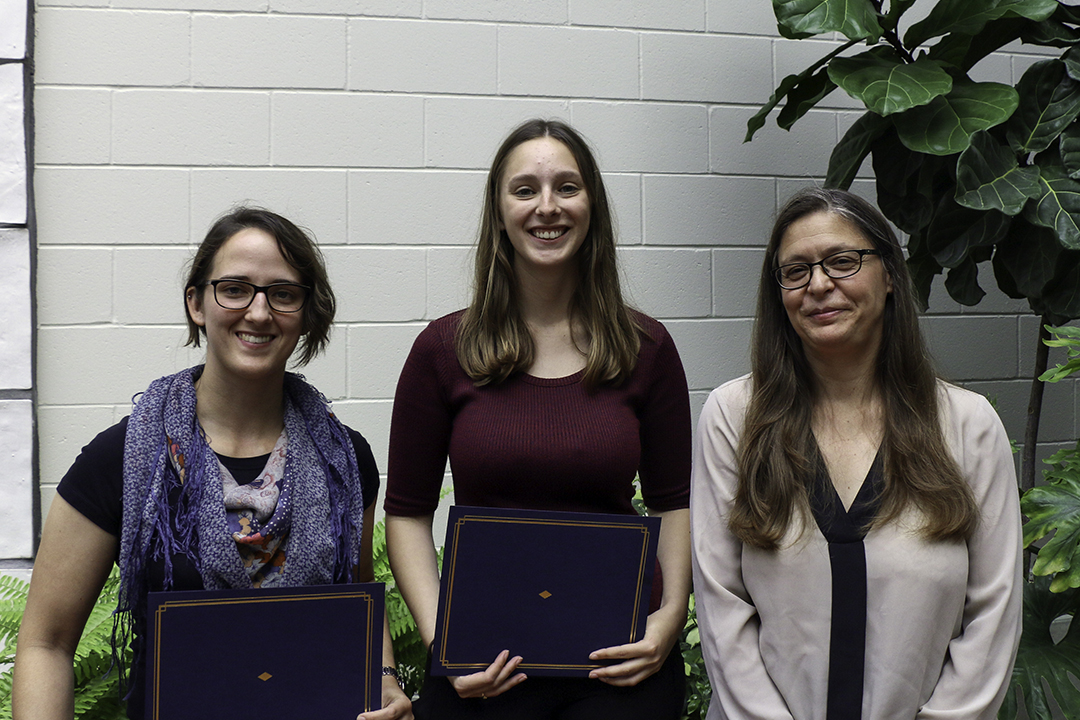
Vet school strikes the right chord for Loeffen
Amanda Loeffen had completed one semester in the University of Saskatchewan’s (USask) College of Engineering when she suddenly realized that she was in the wrong place working toward the wrong career.
By Lynne Gunville“I was sitting in Calculus II when I decided I did not want to be there anymore,” recalls Loeffen, who is now a first-year student at the Western College of Veterinary Medicine (WCVM). “I knew I wanted a career that was intellectually challenging, hands on and kept me on my feet. While still in class, I started looking at the admissions page to the WCVM, and I called an adviser later that week.”
Loeffen grew up on an acreage outside of Prince Albert, Sask. She always had a keen interest in animals, and her parents encouraged her to learn more about the animals around her — the family cats and dogs as well as the cows, horses and wildlife in the surrounding countryside.
When Loeffen looks back, she recalls that her family often suggested a veterinary career to her when she was a kid, and she now realizes that they knew what she wanted long before she did.
Loeffen transferred to the USask College of Agriculture and Bioresources, and while she worked on her Bachelor of Science in Animal Bioscience degree, she volunteered at the university’s Rayner Dairy Research and Teaching Facility, the Poultry Centre and the Prairie Swine Centre.
Loeffen also volunteered at the WCVM’s Veterinary Medical Centre where she assisted Dr. Kira Penney and the small animal rehabilitation team as they worked with animals recovering from surgery or suffering from arthritis and other debilitating illnesses.
“My favourite part was interacting with the dogs and clients,” says Loeffen. “It was very hands on, and I learned so much about training and how to work with what the animal is offering you.”
Loeffen also volunteered at Prince Albert’s Park Range Veterinary Services, a mixed animal practice that provided opportunities for her to work with both large and small animals.

In 2019 Loeffen gained research experience when she worked as a USask undergraduate student research assistant with WCVM assistant professor Dr. Diego Moya. She spent the summer conducting research for her animal bioscience thesis involving pain management during surgical castration of beef calves (click here to read story). Loeffen’s research poster also earned her a first place in the WCVM’s undergraduate student research poster competition.
Although Loeffen was kept busy with classes and volunteer work, she also found time to enjoy playing bass clarinet with the USask Wind Orchestra.
“It [the orchestra] has been an excellent way for me to focus on something other than school,” says Loeffen. “It has been a great way for me to continue creating music with other people.”
Having grown up in a musical family, Loeffen learned to play piano and violin at a young age, but she was hooked on playing the bass clarinet once she discovered it in Grade 5 band class.
“I have been to so many places and met so many people — all from playing the bass clarinet,” says Loeffen. “Through Air Cadets I was able to travel through Alberta, British Columbia and Manitoba in marching bands.”
Although the WCVM Chamber Orchestra has taken a pause during the pandemic, Loeffen looks forward to participating in the group once it’s safe to do so.
Now that Loeffen is attending veterinary classes, she’s particularly enjoying the animal handling labs and the clinical skills labs, and she’s looking forward to meeting the many interesting and like-minded people in the WCVM community over the next four years. While Loeffen is contemplating a future career in a mixed animal practice somewhere in northern Saskatchewan, she’s also leaning towards the idea of being a bovine practitioner.
In addition to being grateful to all of the people with whom she worked and volunteered, Loeffen appreciates that her work with the different organizations gave her a chance to experience various points of view.
“My many different experiences have helped me to gain a balanced perspective which will help me when working with clients,” says Loeffen.
“Being able to learn from and understand people who have different perspectives than me has helped me to be a well-rounded and compassionate person, and I think this will help me to be a great veterinarian.”
